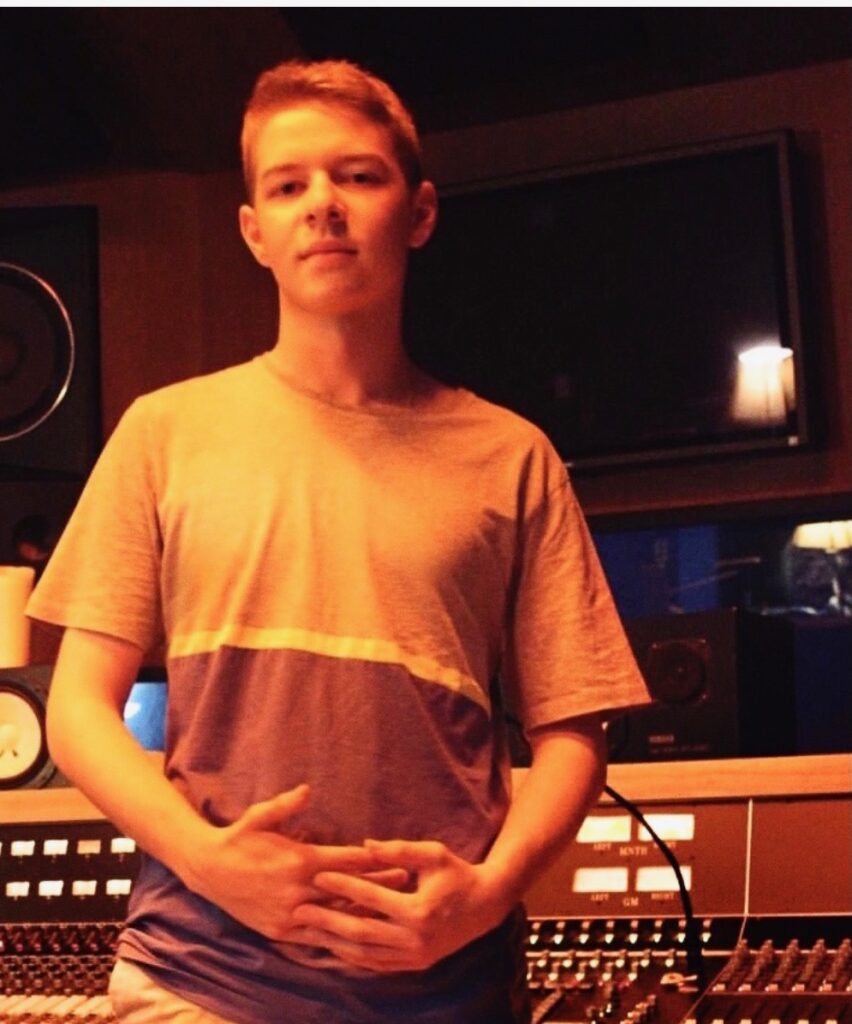Recording artist and music manager Rowe Rowe has recently written the pilot episode of “Unstreamed,” which follows Justin James—a rags-to-riches and back again record producer—developing imposter syndrome after discovering a hard drive and building a successful career around it. Rowe Rowe is also the founder of The Royal Interval, striving to disrupt the music industry and empower creatives. Rowe’s mission is to create an egalitarian digitized space and change how major labels manage their artist rosters. That is where The Royal Interval comes into play: it’s a platform that incentivizes direct collaboration and makes the talent discovery process much easier. Managers can post listings directly, and also can track where their beats or demos have been placed. Rowe’s next vision for the company is for it to be acquired by a record label and work together directly to expand the technology even further.
FMM: Tell us what led to the launch of your TV series, “Unstreamed.”
The reason for the launch of the series was that I wanted to reflect on my experiences in the music industry and, through visual means, educated an audience about how talent search and artist marketing works on the whole. The show is predicated on the idea that spontaneous collaborations in the music industry often occur when you least expect them. Right now, I’m in the midst of pitching to studios, but the script has already been a quarter finalist in two TVwriting competitions, so I’m extremely grateful for the positive reception so far.
FMM: Is this a cautionary tale to aspiring artists?
In some regards, I would argue yes! The quest for overnight fame leads talent to make perilous choices. Accepting an offer that supposedly guarantees stardom, is a trap many creatives fall for. It’s a motif I wanted to be at the forefront of the series. However, I do want to showcase the magic that occurs when artists and producers end up connecting. Especially now, when talent can Zoom with each other and produce an entire song via the computer screen. That, I believe, is something special.
“My advice to artists is to form a collective and partner up into a team.”
FMM: What does the nature of the music industry look like today?
The nature of the music industry is that creatives are now becoming digital creators, thus artists who have a strong brand identity can partner with brands to promote their products, and market music that works well for TV/film placements. When I first started, the process of buying music through itunes was seen as customary, but as the new shift towards streaming outlets and now even digital avatars has occurred, there is a new critical importance for building a fan base and a following. This clout-gaining has never been so important as it is now. One could even argue that data plays a significant role in the realm of talent discovery. Play-counts are extremely critical, so it is difficult for new artists to get started. In my series, this process occurs when one of the artists works with a producer because “making it” or being discovered is more than simply having artistic merit. The producer character in the series has many followers, is younger, and a marketing expert, thus bringing marketing value and extra equity.
FMM: How has TikTok changed the landscape for artists?
TikTok has become a wonderful free promotional tool. TikTok seems to work in the favor of artists and users who are constantly engaging the algorithm. Artists should be dueting producer videos asking for songwriters to write a verse, or even offering cross-promotion opportunities. This is where they would partner up with a talent who has a similar number of followers, and possibly duet with each other doing a cover, thus linking their two separate fan bases. The larger message I want to advocate through this series is that fame doesn’t come overnight, and is a strategic growth process. Even the stars who seem to be all over every swipe down on Tik Tok have had marketing and promotional experiences that helped garnish a robust career.
FMM: How important is giving back to you?
Giving back is crucial, and any time I can help someone get their foot into the door of the entertainment industry, I don’t hesitate to do so. When I was starting to pursue the artist management route, I had applied and was then denied by every internship. I took that time to manage some of my friends and use them as a case study, which allowed me to network and begin doing my own projects within the industry. The next year, I was able to map that experience onto my current role as an artist manager and talent scout.
FMM: “Unstreamed” contends with the ballistic ascent to fame, and the long crash thereafter. What is your advice for artists today?
My advice to artists is to form a collective and partner up into a team. The process of building a foundation and developing collective projects is so crucial, and the work created can help one another elevate each other’s status and use their shared clout for their own pitching purposes.





